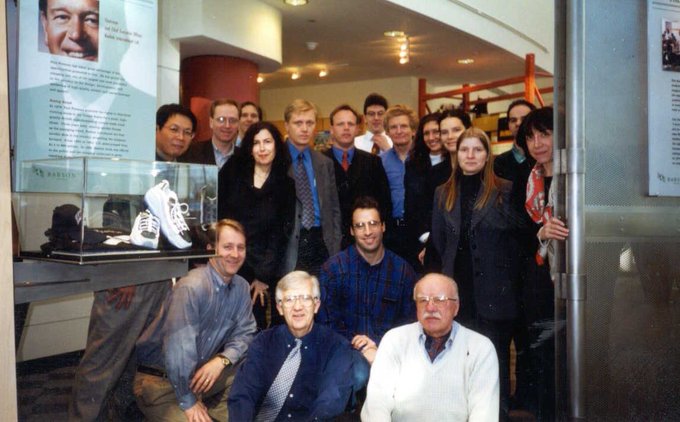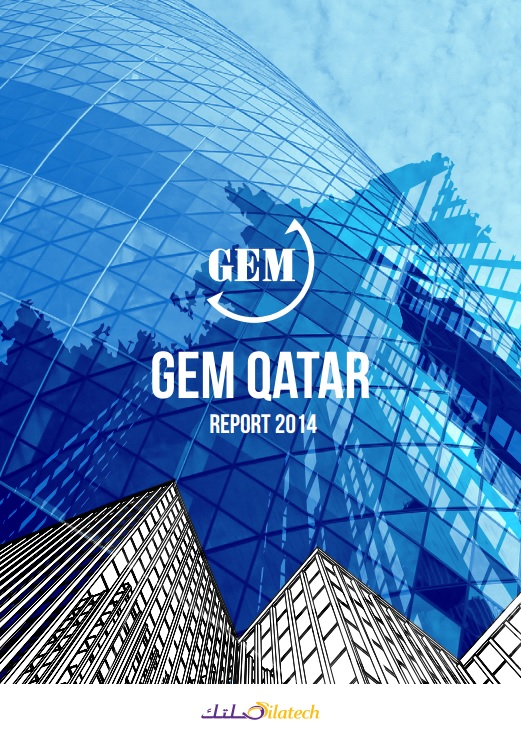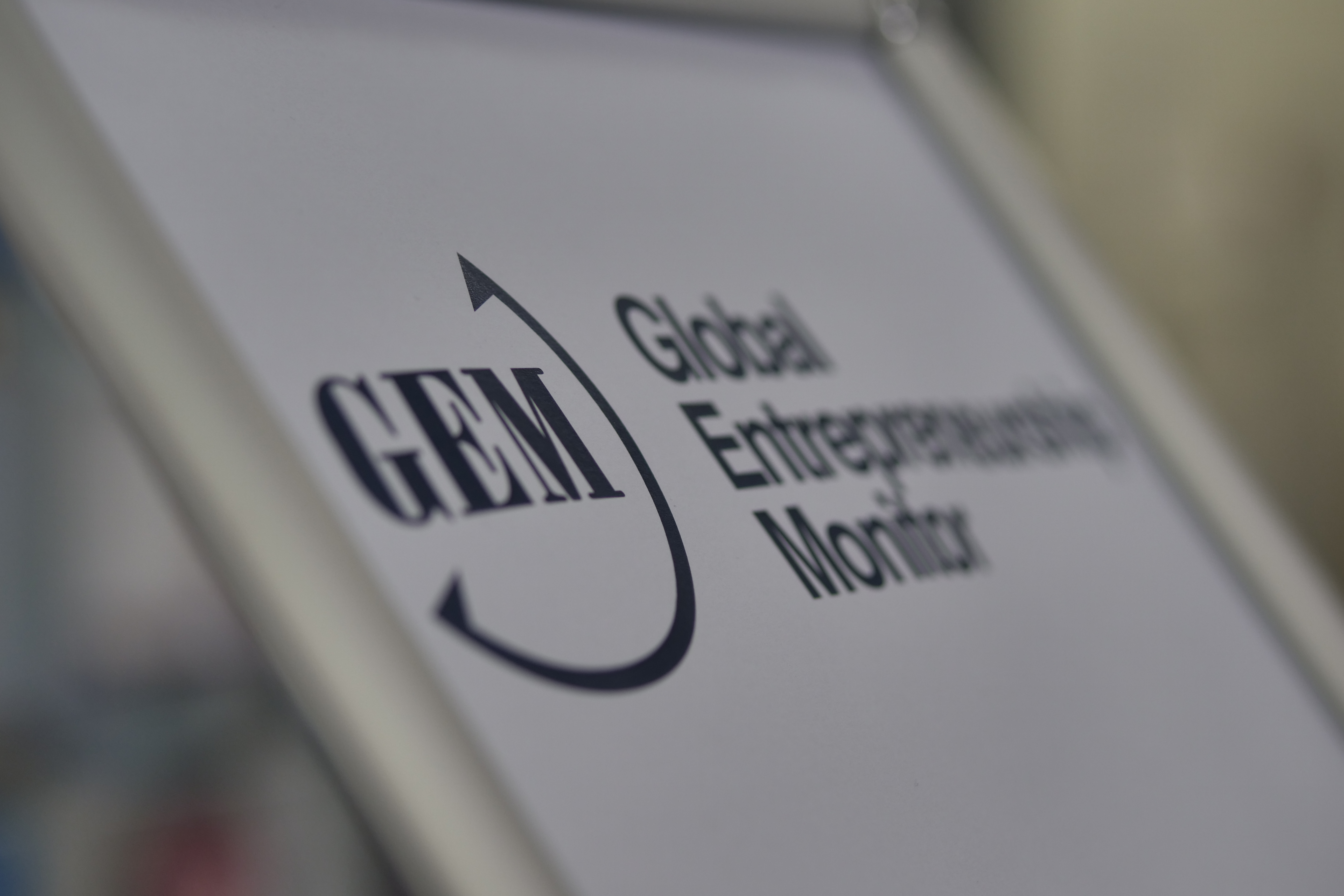 Access a PDF booklet featuring the content in this article at this link.
Access a PDF booklet featuring the content in this article at this link.
Think back to 1999 – 25 years ago. There was panic about the Y2K bug as the world approached the year 2000. The BlackBerry smartphone was launched; iPhones weren’t even a thought. The Euro currency was just being introduced, while Tony Blair, Bill Clinton, Nelson Mandela and Jiang Zemin were in power.
In the world of entrepreneurship research, it was not simply “business as usual”. The first Global Entrepreneurship Monitor (GEM) report was published, marking the beginning of a revolution in entrepreneurship research. Over the next quarter century, a GEM Global Report was published each year, as well as a plethora of National and Special Topic Reports. The vast troves of valuable data and insights from GEM have impacted thousands of policymakers, academics, international organizations and entrepreneurs around the globe.
On the occasion of GEM’s silver anniversary, here are 25 facts about what is today the world’s foremost study of entrepreneurship.
BEGINNINGS
1. Bill Bygrave from Babson College and Michael Hay from London Business School joined forces to co-create GEM.
2. GEM brought a unique approach as the only global research source that collects data directly from the source – entrepreneurs.
 3. The founders of GEM provided the first and only source that gathers and analyses data on the average state of the business environment for starting new businesses in participating countries.
3. The founders of GEM provided the first and only source that gathers and analyses data on the average state of the business environment for starting new businesses in participating countries.
4. The initial GEM report in 1999 included data collected by 10 pioneering National Teams: GEM Canada, GEM Denmark, GEM Finland, GEM France, GEM Germany, GEM Japan, GEM Israel, GEM Italy, GEM United Kingdom and GEM United States.
5. The authors of the first GEM report were Paul D. Reynolds of Babson College, Michael Hay of London Business School and S. Michael Camp of the Kauffman Center for Entrepreneurial Leadership.
THE EVOLUTION OF A PROJECT
6. In 2004, the first GEM Special Topic Report was published. The GEM 2004 Financing Report reviewed the state of financing for entrepreneurs and their ventures around the world.
7. In 2007, the first GEM report dedicated exclusively to women’s entrepreneurship was published. Several women’s entrepreneurship reports have been published since then. In 2019, the decision was taken to publish a GEM women’s entrepreneurship report every year, given the importance of this priority topic.
8. Other Special Topics over the past quarter century include Education and Training, Family Entrepreneurship, Youth Entrepreneurship and Regional Reports, among others.
9. Beginning with the 2015/2016 Global Report, each economy’s country profile was highlighted with a breakdown of key entrepreneurial data.
10. In 2019, GEM's National Entrepreneurship Context Index (NECI) was launched. The NECI evaluates the entrepreneurial context of a particular economy. Results are based on the scores provided by national experts to a set of Entrepreneurial Framework Conditions for each GEM participating economy in a given year. The number one NECI countries have been the United Arab Emirates (2021/2022 and 2022/2023 Global Reports), Indonesia (2020/2021) and Switzerland (2019/2020).
11. Numerous organizations have sponsored GEM Global Research over the years. Current sponsors include Cartier Women's Initiative (CWI), Fribourg School of Management, Switzerland, Shopify and the Women Entrepreneurs Finance Initiative (We-Fi).
POWERED BY NATIONAL TEAMS
12. GEM research is made possible because of the time, expertise and resources devoted by several hundred people around the world who comprise GEM’s National Teams. Since GEM’s inception, data has been collected from 120 economies across five continents.
13. Over the past 20+ years, there have been six GEM teams that have participated each year with no interruption to date: GEM UK (since 1999), GEM USA (since 1999), GEM Brazil (since 2000), GEM Spain(since 2000), GEM Netherlands (since 2001), GEM Croatia (since 2002) and GEM Slovenia (since 2002).
14. GEM National Teams have been supported by more than 150+ funding institutions.
15. Over 370 specialists in entrepreneurship research have been involved with GEM since 1999, representing more than 150 academic and research institutions.
 16. In addition to the Global Report, teams create and launch their own National Reports that attract the interest of local/regional authorities, state governments and organizations promoting entrepreneurship, among others.
16. In addition to the Global Report, teams create and launch their own National Reports that attract the interest of local/regional authorities, state governments and organizations promoting entrepreneurship, among others.
INFLUENCE
17. The GEM website generates close to 1 million pageviews each year.
18. The most viewed GEM Global Report generated 139,948 unique downloads.
19. More than 1,000 papers based on GEM data have appeared in peer-reviewed journals such as the Journal of Business Venturing, Small Business Economics, Entrepreneurship Theory and Practice, the Academy of Management Journal and the Journal of Small Business Management.
20. GEM is mentioned in hundreds of press articles each year. Notably, Melinda French Gates cited GEM research in an October 4, 2023 article for The Economist.
21. GEM has engaged closely with major international institutions such as the World Bank, World Economic Forum, OECD, WIPO, United Nations and the European Commission, collaborating on reports, presenting at events and providing expert advice.
NUMEROUS EXAMPLES OF POLICY IMPACT
(Below is just a snapshot)
22. In Croatia, the GEM team works closely with the Ministry of Economy, Labour and Entrepreneurship. They assisted in an annual review highlighting Croatia’s progress in fulfilling the EU Charter on Small Businesses and Enterprises’ requirements.
23. White House officials have drawn upon GEM results, and the research team has provided testimony to the United States House of Representatives Committee on Small Business.
24. GEM reports are used and cited by many different government agencies in China, including the National Development and Reform Commission.
25. GEM data revealed that entrepreneurial education needed a considerable boost in Bulgaria. Using this finding, new legislation for entrepreneurial education was written and ultimately approved by the Bulgarian Parliament. This legislation has led to many positive outcomes.
From influencing policy to fostering innovation and inclusivity, GEM's legacy is interwoven with the fabric of global entrepreneurship.
Here's to 25 years of insights and the many more to come!
Access a PDF booklet featuring the content in this article at this link.

